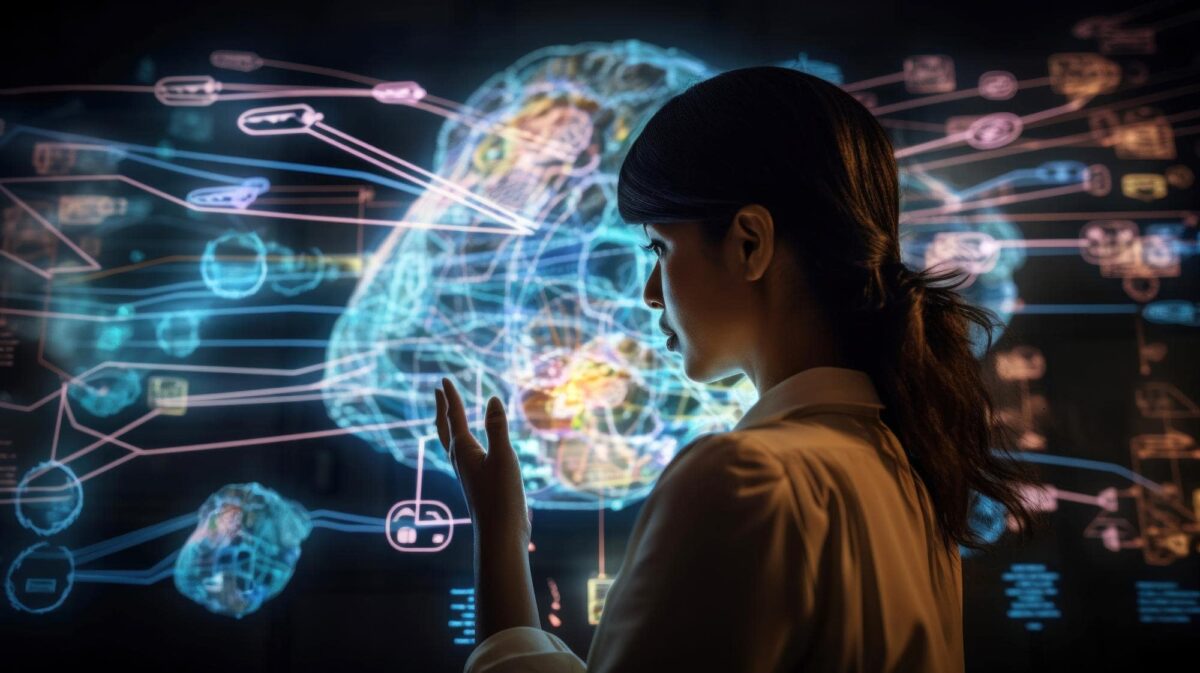Introduction:
In the digital age, the rapid advancement of artificial intelligence (AI) and machine learning (ML) technologies has revolutionized virtually every aspect of our lives, from how we work and communicate to how we make decisions and solve problems. AI and ML algorithms, fueled by vast amounts of data and computing power, have enabled breakthroughs in areas such as healthcare, finance, transportation, and more. In this comprehensive article, we will delve into the recent advancements in AI and machine learning, the transformative impact on various industries, and the ethical considerations and societal implications of this technology.
Recent Advancements in AI and Machine Learning:
- Deep Learning: Deep learning, a subset of machine learning inspired by the structure and function of the human brain’s neural networks, has driven many recent advancements in AI. Deep learning algorithms, particularly convolutional neural networks (CNNs) and recurrent neural networks (RNNs), have achieved remarkable performance in tasks such as image recognition, natural language processing (NLP), and speech recognition.
- Generative Adversarial Networks (GANs): GANs, introduced by Ian Goodfellow and his colleagues in 2014, have revolutionized the field of generative modeling. GANs consist of two neural networks, the generator and the discriminator, which compete against each other to generate realistic data samples. GANs have been used for generating realistic images, creating deepfakes, and generating synthetic data for training machine learning models.
- Reinforcement Learning: Reinforcement learning, a type of machine learning where an agent learns to make decisions by interacting with an environment, has seen significant advancements in recent years. Deep reinforcement learning algorithms, such as Deep Q-Networks (DQN) and Proximal Policy Optimization (PPO), have achieved superhuman performance in complex tasks such as playing video games, controlling robotic systems, and optimizing resource allocation.
- Transfer Learning: Transfer learning, a machine learning technique where knowledge gained from one task is applied to another related task, has emerged as a powerful approach for leveraging pre-trained models and limited data. Transfer learning allows practitioners to build accurate and efficient models for specific tasks by fine-tuning pre-trained models on domain-specific data.
- Federated Learning: Federated learning, a decentralized approach to machine learning where model training occurs locally on edge devices, has gained traction as a privacy-preserving alternative to traditional centralized training. Federated learning enables collaborative model training across distributed devices while preserving data privacy and security.
Transformative Impact on Industries:
- Healthcare: AI and machine learning are transforming healthcare by improving diagnostic accuracy, predicting patient outcomes, and optimizing treatment plans. AI-powered medical imaging, predictive analytics, and personalized medicine hold the potential to revolutionize healthcare delivery and improve patient outcomes.
- Finance: In the finance industry, AI and machine learning are used for fraud detection, risk assessment, algorithmic trading, and customer service automation. AI-driven chatbots, robo-advisors, and predictive analytics algorithms enable financial institutions to streamline operations, reduce costs, and enhance customer experience.
- Transportation: AI technologies are reshaping the transportation sector through the development of autonomous vehicles, predictive maintenance systems, and smart traffic management solutions. Self-driving cars, drones, and intelligent transportation systems (ITS) promise to improve safety, efficiency, and sustainability in urban mobility.
- Retail: In retail, AI and machine learning are employed for personalized recommendations, demand forecasting, inventory optimization, and supply chain management. AI-powered chatbots, virtual assistants, and sentiment analysis tools enhance customer engagement and drive sales growth.
Ethical Considerations and Societal Implications:
While AI and machine learning offer immense potential for innovation and progress, they also raise important ethical considerations and societal implications:
- Bias and Fairness: AI algorithms can perpetuate and amplify biases present in training data, leading to unfair outcomes and discrimination. Addressing bias and promoting fairness in AI systems requires careful consideration of data collection, model training, and algorithmic decision-making processes.
- Privacy and Surveillance: The widespread adoption of AI technologies raises concerns about privacy infringement and surveillance. AI-powered surveillance systems, facial recognition technology, and predictive analytics algorithms pose risks to individual privacy and civil liberties, necessitating robust data protection regulations and ethical guidelines.
- Algorithmic Accountability: Ensuring transparency and accountability in AI decision-making is essential for building trust and mitigating unintended consequences. Ethical AI frameworks, explainable AI techniques, and algorithmic auditing processes can help hold AI systems accountable for their decisions and actions.
- Job Displacement and Economic Disruption: The automation of tasks and jobs by AI and machine learning technologies has the potential to disrupt labor markets and exacerbate income inequality. Addressing the societal impacts of automation requires proactive measures such as reskilling and upskilling programs, social safety nets, and policies to promote inclusive economic growth.
Conclusion:
The recent advancements in AI and machine learning have ushered in a new era of innovation, transforming industries, and reshaping the way we live, work, and interact with technology. From healthcare and finance to transportation and retail, AI technologies are revolutionizing business processes, enhancing decision-making, and driving digital transformation across sectors. However, as we harness the power of AI for societal benefit, it is imperative to address the ethical considerations and societal implications of AI technologies, ensuring that they are developed and deployed responsibly, ethically, and inclusively. By fostering collaboration, dialogue, and informed decision-making, we can harness the transformative potential of AI and machine learning to build a more equitable, sustainable, and human-centered future for all.
